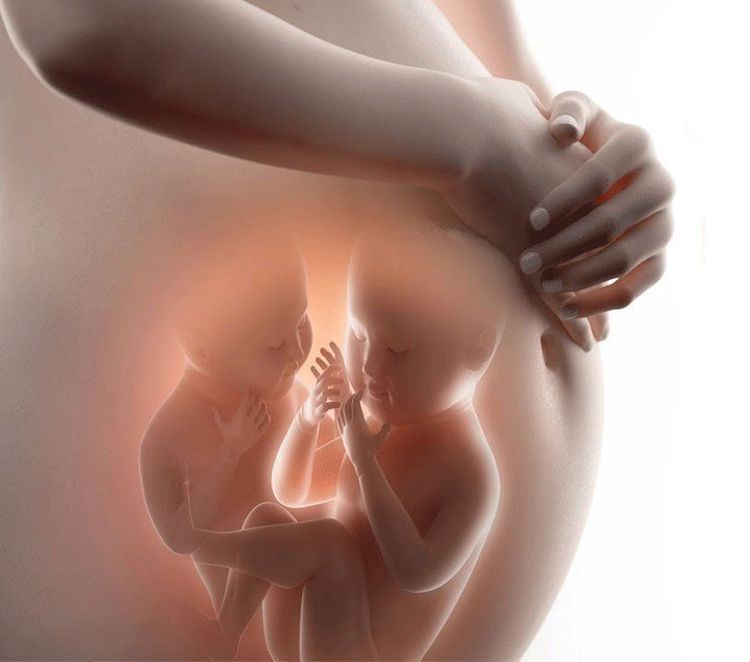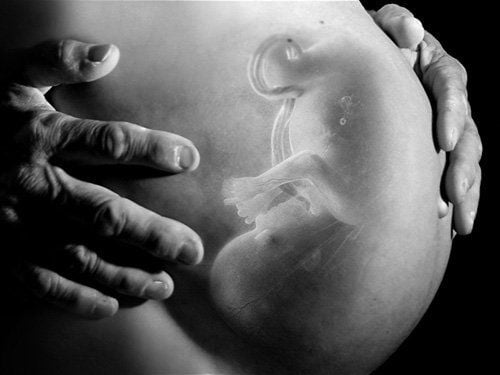This is an automatically translated article.
Posted by Doctor Pham Quoc Thanh - Department of Diagnostic Imaging - Vinmec Hai Phong International General Hospital.1. What is Donor Transfusion Syndrome (TTTS)?
Twin-twin transfusion syndrome occurs when an abnormal vascular connection is formed in the placenta and an unequal distribution of blood between the fetuses occurs. This results in a baby, whom the twin is called a donor, will have blood transfusions through the arteries to the placenta, and not get enough blood containing nutrients and oxygen back from the placenta. through a vein. Meanwhile, the other baby is the recipient fetus, will receive more blood through the veins, compared to the amount of blood that the remaining baby passes through the arteries. As a result, the donor fetus will often be smaller in size and be deprived of oxygen and nutrients. Meanwhile, the receiving fetus will receive a lot of blood, so the circulatory system always has to work, leading to overload, reducing cardiovascular function.

This is a very dangerous condition for both fetuses. Twin-to-twin transfusion syndrome due to arterial and venous fusion leads to hemodynamic imbalance between the donor and recipient fetuses. Moreover TTTS is also known by the volume difference between the two amniotic chambers, polyhydramnios and oligohydramnios (TOPS)
When twin-twin transfusion syndrome is left untreated, 90-100% of the fetus will die. If one of the fetuses dies, the remaining 25% will have severe neurological sequelae. The rate of twin-twin transfusion syndrome is 0.1-1.9/1000 births.
2. Ultrasound detects signs of pregnancy with twins MCMA like?
Fetal ultrasound is an important test to detect, evaluate and monitor signs of twin pregnancy, especially detecting signs of twin pregnancy MCMA:
2.1 Pregnancy management The most important thing in twins is DETERMINATION OF THE NUMBER OF PLACES Therefore, the first-trimester screening should not be missed. If the sonographer is uncertain about the number of placentas, an appointment should be made to confirm the number of placentas.
Mark the position of each fetus based on the position of right - left, front - back, top - bottom.
Measure cervical canal length to predict preterm birth.
Ultrasound every 2 WEEK from 16th week to the end of pregnancy for monochorionic twins to detect complications early.
Ultrasound assessment of weight, deepest amniotic cavity index, fetal bladder, Doppler umbilical artery, middle cerebral artery to detect complications.
Detailed fetal echocardiography, especially in recipients with hypertrophic cardiomyopathy and right ventricular outflow tract stenosis due to circulatory overload.

2.2. Predictive signs of TTTS In the first trimester: Difference in the length of the head of the rump of the NT > 95 centigrade or a difference of > 20% between the two fetuses Reversal or loss of a wave of the venous ducts. In the second trimester:
Abdominal circumference difference Amniotic membrane folds Membrane umbilical cord in fetus for placental density is reduced in fetal part for 2.3. Definite diagnosis: TTTS was diagnosed prenatally by ultrasound, including 2 criteria:
(1) Single placenta twins (2) One polyhydramnios (MPV >8cm) AND one oligohydramnios (MPV<2cm) ) If only amniotic fluid difference does not meet the criteria (2), the probability of developing TTTS is only <15%.
Although developmental difference (>20%) and intrauterine growth restriction (EFW<10%) can often be associated with TTTS, it is not a diagnostic criterion. The differential diagnosis may include Selective Growth Retardation (sIUGR), or possibly only 1 fetus with abnormal amniotic fluid volume.
Polycythemia vera syndrome (TAPS) is defined as anemia in the donor fetus (MCA PSV > 1.5 MoM) and polycythemia vera in the recipient fetus (MCA PSV < 1 MoM).
TTTS can occur in multiple pregnancies that contain monochorionic twins.
TTTS in mono-amniotic twins (MCMA) is manifested by polyhydramnios, no oligohydramnios.

In MCMA twins, the sequence of signs of polyhydramnios – oligohydramnios will not be detected; the diagnosis of TTTS is based on the detection of other clinical signs of this syndrome, such as polyhydramnios (the largest amniotic cavity). ≥ 8 cm before 20 weeks or 10 cm after 20 weeks), bladder size difference (no bladder observed in donor and dilated bladder in recipient), Doppler spectrum abnormalities in either fetus .
The unusual anastomosis pattern in MCMA twins with larger arterio-arteriovenous vessels than in MCDA twins can lead to acute TTTS, causing sudden fetal death, this explains for high mortality in MCMA.
3. Why is Transfusion Syndrome in twins with one placenta and one amniotic cavity dangerous?
Twin-twin transfusion syndrome is an obstetric emergency that requires prompt treatment. Consequences of twin-twin transfusion syndrome are:
Premature birth Amniotic fluid infection, polyhydramnios, fetal heart failure, due to heart failure, the recipient will die Anemia, lack of oxygen in the fetus leading to death due to placental failure or due to chronic anemia. The risk of nervous system damage is 25% for the other fetus. Transfusion syndrome received in twins with one placenta, one amniotic cavity, it is necessary to evaluate and periodically monitor to provide early diagnosis and early intervention to ensure the safety of the fetus.
At Vinmec International General Hospital, there are:
A modern and specialized ultrasound machine system with software used for ultrasound assessment of pregnancy. A storage system to compare the development or changes of the fetus in different periods of time. Experienced sonographers and a team of obstetricians will monitor, advise and intervene in a timely manner. Fetal development In addition, Vinmec Hospital has a package maternity service as a solution to help pregnant women feel secure because of the companionship of the medical team throughout the pregnancy. When choosing Maternity Package, pregnant women can:
The pregnancy process is monitored by a team of highly qualified doctors Regular check-ups, early detection of abnormalities The package pregnancy helps to facilitate convenient for the birthing process Newborns are taken care of comprehensively.
Please dial HOTLINE for more information or register for an appointment HERE. Download MyVinmec app to make appointments faster and to manage your bookings easily.














